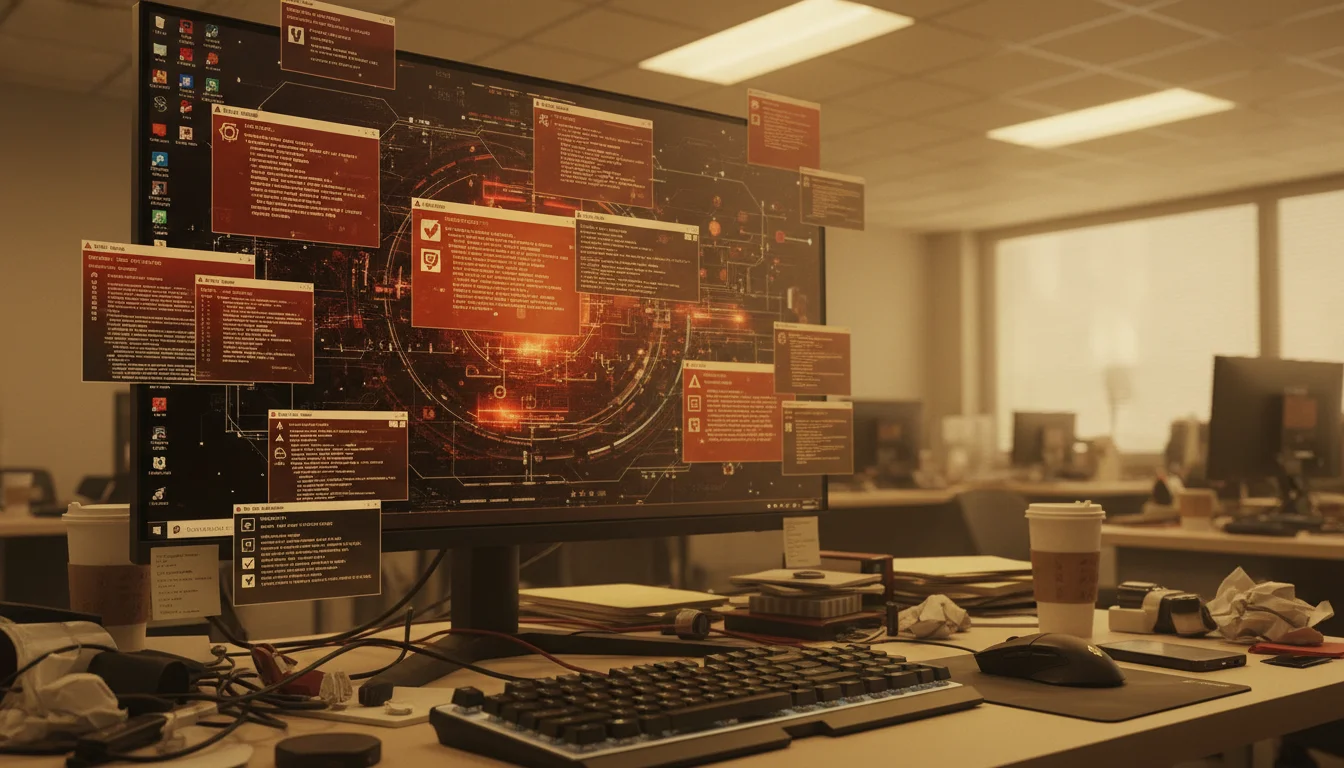Table of Contents
Your computer’s running like it’s stuck in molasses, pop-ups are breeding like rabbits, and random error messages won’t stop. Yeah, you’ve got a virus.
Computer viruses spread through shared files, email attachments, sketchy downloads, and that USB stick your coworker handed you. Once they’re in, they can corrupt files, steal passwords, wreck your boot sector, or just generally make your machine unusable. The damage depends on what type you’ve caught.
Quick virus types you might be dealing with:
Resident viruses hide in your RAM and intercept operations. They’re after passwords and credit card numbers.
Direct action viruses attach to files and activate when you run those files. Antivirus software can usually clean these.
Overwrite viruses delete your file’s contents and replace it with themselves. Your only fix is restoring from backup.
Boot viruses infect the boot sector of your hard drive and load before Windows even starts. Write-protect your drives and don’t boot from unknown disks.
Macro viruses live in Word, Excel, and PowerPoint documents. They activate when you open the infected file.
File infectors ride along in executable programs and spread when you run them.
Before you start
You need antivirus software. Period. Your computer probably came with something (Windows Defender is built into Windows 10 and 11). If you’re shopping for antivirus protection, here’s what actually works:
McAfee – Solid, been around forever. You get what you pay for.
Norton (Symantec) – One of the best scanners available. Warning: it’ll slow your system down unless you keep it updated religiously.
Avast – Free and surprisingly good. Easy interface.
AVG – Also free, auto-updates itself, and beats a lot of paid options.
Pick one, install it, keep it updated. Now let’s fix your infected machine.
1. Run your antivirus software immediately
Blue screens, random reboots, excessive pop-ups, or your machine crawling along at half speed? You’ve got something.
Stop what you’re doing. Close all programs and files. Run your antivirus scan right now. Don’t install updates first (not even for the antivirus itself). Scan first, then update, then scan again.
Don’t start randomly deleting programs trying to fix this. You’ll make it worse. If you haven’t backed up your data recently, do it now before the scan. Even virus-infected backups can usually be cleaned later, which beats losing everything.
Some viruses block your antivirus from opening. You’ll click the icon and get an error or nothing happens. That’s when you need the other methods below.
2. Use a rescue disk
Most antivirus programs ask you to create a rescue disk during installation. If you actually made one (most people skip this), dig it out and use it now.
Shut down your computer, insert the rescue disk (or USB), and boot from it. The disk loads before Windows and scans your system before any virus can activate. This catches boot viruses and stuff that prevents Windows-based scanners from running.
Didn’t make a rescue disk? Most antivirus companies let you download one from their website using a clean computer.
3. Use online antivirus scanners
Your installed antivirus might be compromised or blocked. Online scanners run from your browser and don’t need installation, which makes them harder for viruses to stop.
Free online scanners that work:
- Avast Virus Cleaner
- Panda ActiveScan
- Trend Micro Housecall
- Kaspersky Online Scanner
They’re slower than installed software and you’ll need an internet connection, but they work when your regular antivirus can’t run.
4. Scan from another computer
If you’ve got a home network, access your infected computer’s files from a clean machine and scan them remotely. The virus can’t interfere with a scanner that’s not running on the infected system.
No network? Pull your hard drive out (carefully) and connect it to another computer as a secondary drive. Scan it from there. This is more work but it’s the nuclear option when nothing else works.
When to give up and get help
You’ve tried everything above and your computer still acts possessed? Time for professional help. Local computer repair shops can handle this (search "computer repair near me" or check your phone book). Get price quotes first. Some places offer free diagnostics and will tell you if it’s even worth fixing versus buying new.
Back up whatever data you can recover before handing it over.
